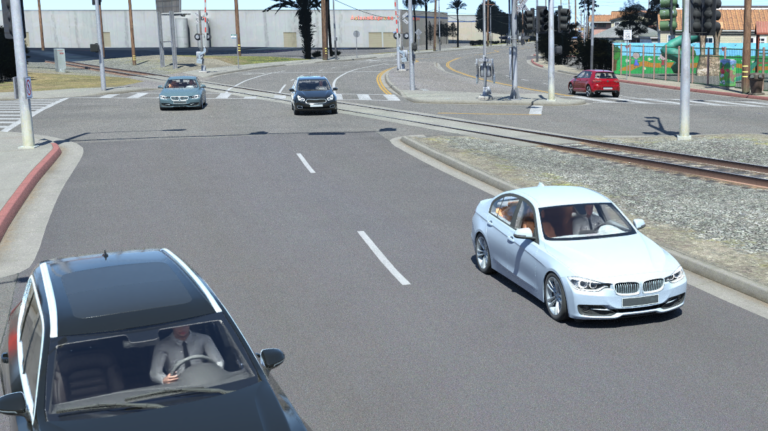Simulation software specialist rFpro has developed a highly-accurate digital twin of an expansive network of roads in Los Angeles, California, to support the development of autonomous vehicles (AVs) and automated driving (AD) technologies.
The virtual environment is designed to enable engineers to conduct extensive representative testing of AVs in simulation before progressing to public roads.
“LA is one of the leading cities globally for developing and trialling autonomous vehicle technologies,” said rFpro technical director Matt Daley.
The LA model features a 36km loop that is navigable in both directions and acts as an environment for engineers to conduct real-world-based testing. Capturing the layout of LA’s roads, the model includes configurations such as highways, split-dual carriageways and single carriageway sections.
The model was created using survey-grade lidar scan data to generate a vehicle dynamics-grade road surface, which is accurate to within 1mm in height across the entire 36km route.
The digital twin features 12,400 buildings, 40,000 pieces of vegetation and more than 13,600 other pieces of street furniture, including street lights, traffic lights, road signs, road markings, walls and fences. rFpro says all these objects have been physically modeled with appropriate material characteristics, which is critical for testing sensor systems.
“One of the key benefits of our technology is enabling real-world events and conditions to be recreated in a highly accurate simulation. This provides a better understanding of what happened in that particular scenario and allows new perception systems and control algorithms to be exhaustively tested in the same situation before deploying it on a vehicle,” explained Daley.
It also incorporates AD challenges such as roadside parking, islands separating carriageways, drop kerbs in residential areas, rail crossings, bridges, tunnels and a large number of junctions.
The digital twin, according to rFpro, is designed to cater to use cases including testing vehicle dynamics, ADAS, human factors and headlight development.
“Our model provides OEMs with the ability to thoroughly train and test perception systems in a safe and repeatable environment before correlating these simulated results on the public road,” said Daley.


